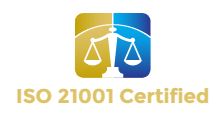|
|
|
Royal Society of Fellows ™ Ethics and ProfessionalismEthics Guidelines for the Royal Society of Fellows™ (RSOF)
At the Royal Society of Fellows™ (RSOF), we are committed to fostering a community that upholds the highest ethical standards. These guidelines outline the principles that all members are expected to follow, ensuring a culture of integrity, respect, and accountability. 1. Integrity and HonestyRSOF members are held to the highest standards of integrity and honesty in all aspects of their professional and personal lives. Transparency, sincerity, and ethical behavior are expected in every interaction, both within the society and externally. 2. Respect and InclusivityWe celebrate the diversity of backgrounds, opinions, and perspectives among our members. Discrimination or harassment of any kind is strictly prohibited. Every individual—regardless of race, ethnicity, gender, religion, sexual orientation, or any other characteristic—deserves to feel valued, respected, and included. 3. ConfidentialityConfidential information shared within the RSOF must be handled with care and discretion. Members are required to protect the privacy of their peers and refrain from disclosing sensitive information without proper authorization. 4. Professional ConductMembers are expected to maintain professionalism at all times, adhering to the ethical standards of their respective fields. Avoiding conflicts of interest, acting with independence, and making objective decisions are fundamental responsibilities. 5. AccountabilityRSOF members take responsibility for their actions and are open to constructive feedback. They are expected to promptly address and rectify any mistakes or shortcomings, demonstrating a commitment to personal and professional growth. 6. Compliance with Laws and RegulationsMembers must comply with all applicable laws, regulations, and professional codes of conduct. Staying informed about relevant legal and ethical requirements is essential to ensure that actions align with these standards. 7. Intellectual IntegrityRespect for intellectual property is a cornerstone of the RSOF community. Members are expected to properly acknowledge the ideas, work, and contributions of others. Plagiarism and academic dishonesty are strictly prohibited. 8. Social ResponsibilityRSOF members are encouraged to use their expertise and resources to make a positive impact on society. Ethical choices that benefit individuals and communities should guide their actions, ensuring contributions promote the common good. 9. Continuous Learning and ImprovementA commitment to lifelong learning is vital for RSOF members. By pursuing ongoing professional development, staying informed about emerging ethical issues, and collaborating with peers, members can effectively address challenges and broaden their perspectives. 10. Reporting ViolationsMembers who become aware of potential violations of these guidelines or other misconduct are encouraged to report their concerns promptly to the appropriate authorities or RSOF leadership. Reporting mechanisms are designed to be accessible, confidential, and free from retaliation. ConclusionBy adhering to these ethics guidelines, members of the Royal Society of Fellows™ uphold the principles of integrity, respect, accountability, and social responsibility. Together, we can cultivate an ethical and supportive community dedicated to excellence and the betterment of society. |
|
Accreditation Bodies: www.GAFM.com * www.GAFM.org * www.CertifiedProjectManager.eu * www.AAFM.org * www.CertifiedProjectManager.org * www.icecc.com * www.RoyalLawSociety.com * www.RoyalBusinessSociety.com * www.RoyalBusinessCollege.com * www.RoyalFellows.com * www.RoyalEconomicsAcademy.com * www.OxfordLawSchool.com * www.RoyalManagementSociety.com *



